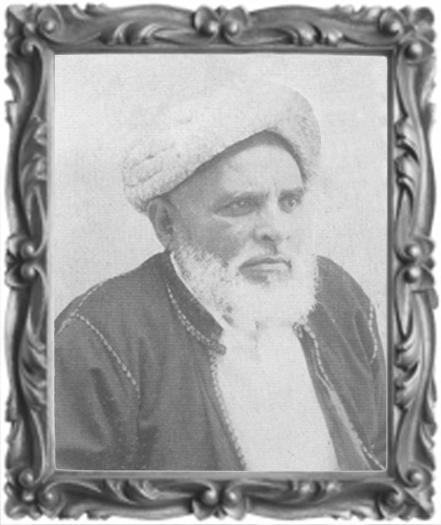“Everybody eventually gets forgotten” were Allidina Visram’s words to His Highness Daudi Chwa, the Kabaka of Buganda. On the day Allidina was buried in 1916, shopkeepers across East Africa closed their businesses as a sign of respect to the man.

Allidina Visram’s legacy is now existent to most by virtue of a prominent school named after him and a bust gracing Treasury Square in Mombasa. His greater legacy is largely forgotten. In his prime, Allidina Visram was accustomed to meeting and dining with the high and mighty. He poignantly stated to His Highness Daudi Chwa, the Kabaka of Buganda in his last meeting with him that “everybody eventually gets forgotten”. Presumably at the mention of his achievements. He died at 65 years old, at a stature that must’ve been unimaginable to his younger self.
He arrived on a dhow in Zanzibar in 1863 from Kera, India at 12 years old, cold and alone, later moving to Bagamoyo. His was a well-trodden journey by many Indians at the time. The migrants arrived almost penniless.They arrived following in the path of other Indians who had travelled to the Swahili Coast and made networks into the interior becoming successful ‘dukawallas’ (shopkeepers). They relied on the established Indian traders for hospitality, apprenticeship and patronage. A number had some little understanding of English but Arabic and Kiswahili were foreign. The apprenticeship earned them credibility to earn stock on initial credit to venture out to start their own businesses and was also an introduction to the locally spoken languages.
The initial stock was to be repaid in 90 days. Timely repayment determined how good a family’s name would be for future business. Allidina Visram was this kind of apprentice to Sewa Haji Paroo, ‘the uncrowned King of Bagamoyo’, a giant of East African trade in his time. It ended up being a case of a student surpassing the master, with Allidina reaching greater heights than Sewa Haji. We are used to the shrewd Indian business style of business practised to this day but this apprenticeship style was not ‘failure-proof’ for the newcomers. At the time, almost 50% of businesses started in this manner in Zanzibar ended in failure. It fell on family members to take on the debts of their kin in order to clear the larger family’s name to avoid being blacklisted from the trading network.
Allidina’s success paints a picture of his own drive, dedication, acumen and luck of the stars to have found a mentor as great as Sewa Haji. An 1896 contract for 10 years with Sultan Sayed Hamid bin Thwain underpined Sewa Haji’s influence. The contract stated, “…Sewa Haji is to sell all the crops, consisting of coconuts, cloves and clove-stems, grown on the Government shambas situated both in Zanzibar and Pemba. He shall try his best to obtain the best prices current in the town, or more and he is to receive a commission on everything he sells of 5 percent. Sewa Haji has the sole monopoly to sell the said Government product, and no one else can do so until the expiration of said period”. Sewa Haji died only 9 months after and the contract was voided.
By this time, Allidina had already ventured out on his own and was a man of means. He took over Sewa Haji’s caravan trade and wagons, taking the trade all the way to Uganda, Congo and Southern Sudan. Allidina initially dealt in cloves, wax and honey. Purchasing them in exchange for cloth, salt and grains. His big break came when he began specializing in ivory. The ivory was a by-product of the hunting expeditions by Europeans and Americans. Allidina had been contracted to provide packed food for the hunters. Fair to say, he was a man of his time. His ivory trading exploits would be heavily criticized and illegal in this day and age. To have eventually earned the nickname ‘King of ivory’ points to the carnage on animal life the hunting expeditions caused & the large amount of ivory that resulted from them. If his legacy ended at the ivory trade, his story would have been irrelevant to this generation.
The standout bit is where Allidina grew into a one-man financing institution, literally a bank. When construction of the Uganda Railway commenced in 1896, Allidina was contracted to pay railway workers their salaries and provide funds to the railway authorities. This went on alongside the business model long associated with him, he supplied food to the railway workers & opened stores along the railway. A man who understood the importance of multiple income streams & when a business ran its course, he ventured into agriculture in 1904. Allidina Visram went on to own seven large plantations of sugar cane and rubber and had experimental plots of grams, fruits, flowers, tea and cotton. In all, he employed over 3,000 workers on his projects. He opened a ginnery in Entebbe for exporting ginned cotton to India.
He owned sailing crafts on Lake Victoria to transport the cotton to Kisumu then to Mombasa by rail. “Perhaps the most important individual in the early history in East Africa, Allidina Visram was responsible for laying the firm foundation not only of trade in Uganda but of such industries as cotton, sugar, rubber, tea and various other agricultural products as well as of shipping across Lake Victoria”, Dr. Cyril Ehrlich wrote in The Uganda Economy. Plantation agriculture is prone to harsh working conditions bordering on plain slavery. However, it is here that Allidina’s name is somewhat sanctified. He is noted commanding his managers, “don’t underpay an illiterate peasant. Allidina will not stand accused”.
More formal compliments came from Fredrick Jackson, British Commissioner of Uganda, “I am doing all I can to induce the people to cultivate sugar cane and simsim (sesame). An Indian trader named Allidina Visram is already prepared to buy as much as the natives like to cultivate and that should assist in the circulation of the rupee if the people can only be induced to cultivate”. He also described Allidina Visram as “a charming old gentleman, respected by everyone in the country, high and low, white or black.”
The First World War was harsh on global businesses. The East African campaign of the war was particularly harsh on Allidina’s businesses. The whole natural line of business communication from Uganda to Kenya and Tanzania and the neighbouring regions was adversely affected. In an attempt to salvage his fortunes, Allidina Visram went to Congo in 1916 to explore untapped opportunities. There, he picked up a fever that would ultimately claim his life. Great men do not go out quietly it seems, his mentor Sewa Haji Paroo had died from a shark bite.
Allidina Visram was involved in philanthropy that knew no racial or religious boundaries. He donated towards the building of mosques, cathedrals across East Africa and notably donated to the Red Cross. His journey came full circle posthumously when in 1937, Sewa Haji’s grandson Rajabali Hasham Paroo presented a memorial bronze bust of Allidina that was unveiled in Mombasa by the Colonial Governor of Kenya. By then, Rajabali was General Manager of Allidina’s businesses that were kickstarted after the First World War. Allidina’s son, AbdulRasul Visram had built Allidina Visram High School in his father’s memory almost two decades earlier.
The article was made possible by the in-depth historical documentation by the Khoja Community.
Sources:
https://khojawiki.org/Allidina_Visram
https://khojawiki.org/Sewa_Haji_Paroo
https://khojawiki.org/Dukawalla
SUPPORT: We are a non-funded entity kept alive solely by our readers’ thirst for the undocumented and not adequately documented aspects of our past. The logistics of getting these stories can sometimes be a challenge. We would appreciate your support. To support Pwani Tribune’s history and culture research plus content creation…M-PESA till number: 8627478 Contact: +254726860693



Dear Website Owner,
I hope this email finds you well. I recently discovered your website and was impressed by the quality of your content and the helpful information you offer to your audience. In light of this, I would like to propose a backlink exchange that could benefit both our websites.
My website, https://m.cheapestdigitalbooks.com/, is focused on providing affordable digital books to readers around the world. We currently have a strong online presence with a Domain Authority (DA) of 13, a Page Authority (PA) of 52, and a Domain Rating (DR) of 78. Our website features 252K backlinks, with 95% of them being dofollow, and has established connections with 5.3K linking websites, with 23% of these being dofollow links.
I believe that a mutually beneficial backlink exchange could be of great value for both of our websites, as it may lead to an increase in website authority and improve our search engine rankings. In this collaboration, I am willing to add backlinks from my website using your desired keywords and anchor texts. In return, I would be grateful if you could include backlinks with my desired keywords and anchor texts on your website.
I kindly request that you visit my website, https://m.cheapestdigitalbooks.com/, to get a sense of the potential benefits this partnership could bring to your site. I am confident that this collaboration will provide a win-win situation for both parties, and I look forward to learning more about your thoughts on this proposal.
Thank you for considering my offer. I am excited about the potential growth this partnership may bring to our websites and am eager to discuss the details further. Please do not hesitate to reach out to me at your convenience.
Best regards,
David E. Smith
Email: david@cheapestdigitalbooks.com
Address: 3367 Hood Avenue, San Diego, CA 92117
Hi David,
Albert here. Thank you for reaching out and I am humbled by your sentiments. I sure am interested. Let’s reach out further on email, I will be in touch. My email is mwamburialbert@gmail.com.
Regards,
Albert Mwamburi/Pwani Tribune.